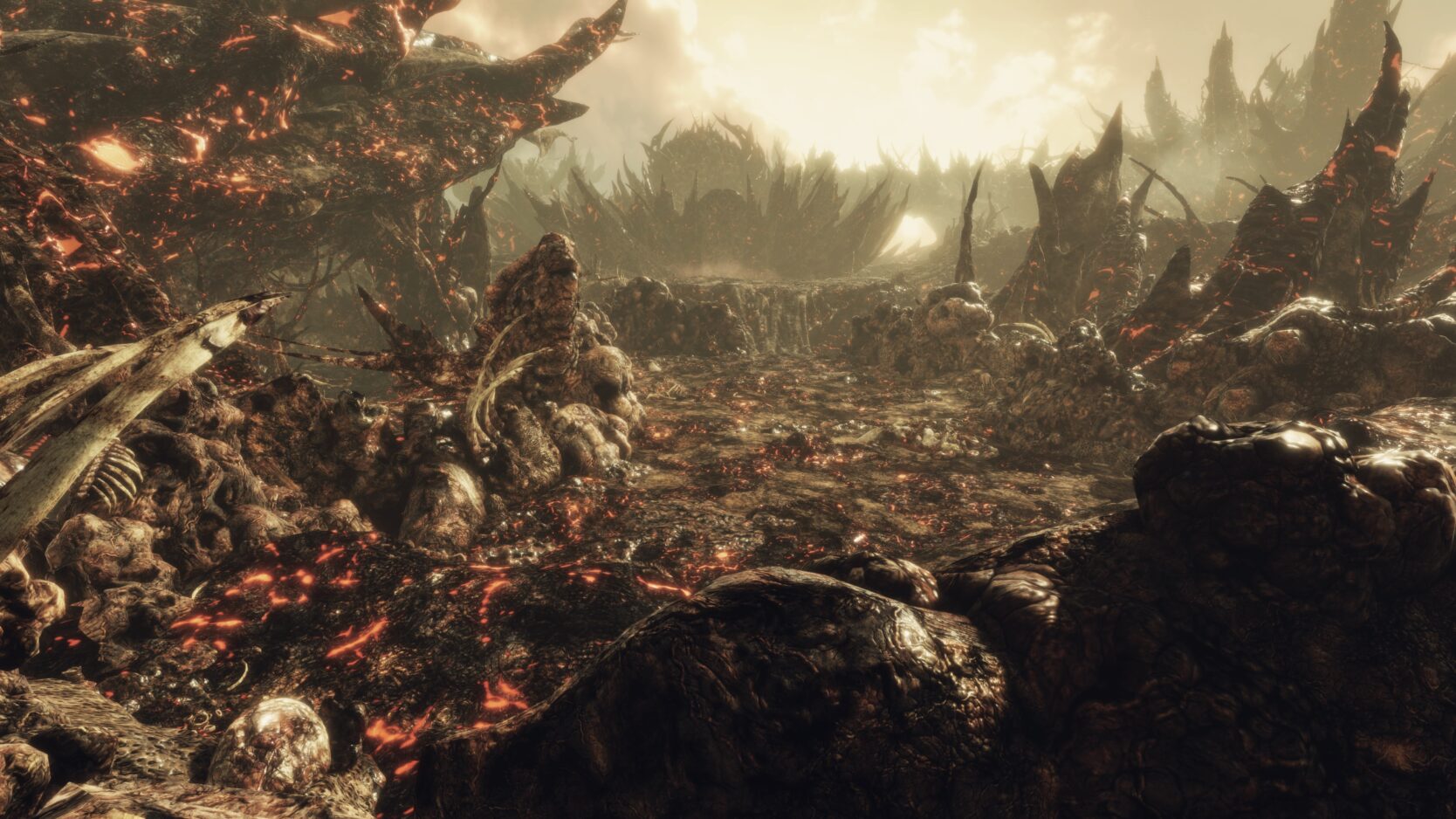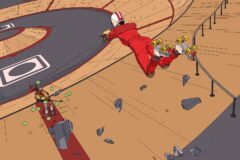When people think of Final Fantasy, they most certainly don’t think of the brutal combat systems that Team Ninja is known for. But with Stranger of Paradise: Final Fantasy Origin’s release last month, that’s exactly what fans got.
The unique combination of style, gameplay and worldbuilding provides a very different experience than any other Final Fantasy game (and pretty much any other Team Ninja title, for that matter), giving Stranger of Paradise a vibe all its own. It’s the Final Fantasy prequel no one asked for, but it still works surprisingly well.
Along with that interesting world comes an equally fascinating soundtrack. Composer Naoshi Mizuta put together a score that perfectly encapsulates the combination of the game’s dark atmosphere and Final Fantasy magic, blending the cinematic and the minute-to-minute gameplay into a fabulous soundtrack.
SPIN spoke with Mizuta — as well as producer Jin Fujiwara, director Daisuke Inoue, and head of Team Ninja, Fumihiko Yasuda — about their involvement in arguably the most unique entry in the Final Fantasy series.
SPIN: What went into crafting the score for this relatively unique world in Stranger of Paradise?
Naoshi Mizuta: There are a lot of Hollywood-like epic orchestra soundtracks out there already, so we attempted to do something a bit different this time. In doing so, we thought we could create a score that is one of a kind and memorable. At the same time, we felt that deviating too far from expectations or creating an overly bold sound would create some dissonance during gameplay, so, we made sure to strike just the right balance in blending these flavors.
Musically speaking, how did you balance both the cinematic and narrative aspects with the more intense combat?
Mizuta: We didn’t consider the balance of these two aspects so much in particular during production. The narrative moments were made to be especially emotional, and the combat scenes were composed to bring tension and intensity, as well as coolness, to the forefront. As a result, I feel this creates a contrast between the two, which seems to naturally bring balance to the entire game when viewed as a whole.
How did composing the music for Stranger of Paradise compare to some of the projects you’ve worked on in the past?
Mizuta: There were no major differences in the process, but the biggest difference in terms of environment was that I created all the songs at home this time — whereas in the past I was going to the office and composing them in my workroom. Being able to relax more easily was an advantage, but it was a little difficult to switch on and off, as I would always be thinking about the project.
From a development perspective, how did you combine the Team Ninja gameplay staples with the world, scale, lore and legacy of a Final Fantasy game?
Fumihiko Yasuda: Team Ninja has been creating action games based on the game design and philosophy of responsive feel and relentless enemies, and we have worked hard to ensure that this remains the case in Stranger of Paradise. Incorporating the attractive Final Fantasy job and party functions into an action game was a great challenge for us, and through feedback on the demo versions and such, I believe it’s become an ultimately enjoyable product.
Stranger of Paradise has a very different atmosphere than people expect from a game in the Final Fantasy universe. How did you come up with the in-game setting and style?
Daisuke Inoue: We thought of the story’s ending first. We crafted the bones of the story considering how Jack Garland will connect to the original Final Fantasy — and from the text that is displayed at the end of that game. Although Stranger of Paradise’s story is a reinterpretation of the original Final Fantasy, it’s still a story that is properly grounded in the established world of the original game and builds off what the original game created.
Seeing as a lot of people went into it as “Nioh meets Final Fantasy,” did you consider Stranger of Paradise to be a blend of the two?
Yasuda: I believe the Nioh-like feeling can be experienced from battles with strong enemies and collecting gear. As for the multiplayer experience, it’s an even more distinctive experience than the Nioh series because of the job system.
Jin Fujiwara: Some may see it that way when looking at the development team, but this title was created with the concept of “Final Fantasy with full-fledged action,” so we were not conscious of creating a cross with any famous titles. At the same time, the action — backed by the experienced Team Ninja — will for sure please Nioh fans, and the Final Fantasy feel can be felt throughout the dungeons, job system and story.
What was it like to see how people reacted to the game’s trailers and betas, with everything from fan art to memes about “Chaos”?
Yasuda: As Team Ninja, this wasn’t something we either planned or expected, so at first, we weren’t quite sure of how to react to the reactions. Ultimately, we were glad to see the buzz and fan reactions!
Is there anything else that people should know about Stranger of Paradise?
Yasuda: We’re continuing to make updates and release DLC, so please stay tuned.
Fujiwara: Its introduction as a highly challenging action game may be intimidating for Final Fantasy fans who don’t play action games very often. However, this game has different modes of difficulty, with the “Story” level being ideal for those who don’t often play action games. Although the game’s story is rather complicated from the beginning, as you play on, the mysteries gradually become clearer.
Mizuta: The mixdown is quite elaborate, although it may not be so noticeable during the gameplay. If players take the time to listen to the music on the soundtrack album, I think they will make some interesting discoveries.





